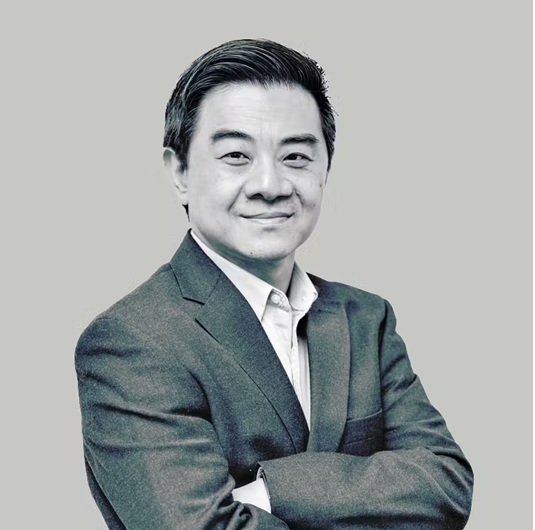1Mby1M Virtual Accelerator AI Investor Forum: Ray Wu, Alumni Ventures AI Fund (Part 1)

Ray Wu, Managing Partner at Alumni Ventures AI Fund, discusses the fund’s investment thesis.
Sramana Mitra: We are going to start today’s program with a conversation with Ray Wu, Managing Partner of Alumni Ventures AI Fund. Ray, welcome to the show.
Ray Wu: Thanks for having me.
Sramana Mitra: Since this is the first time we have you here, let’s start with some introduction of your work, your background, as well as Alumni Ventures.
Ray Wu: Sure. I started as a technologist by training. My background was in electrical engineering. I started doing compilers on mainframes a long time ago. Then I was an operator for many years. I had my own company and then worked in corporate ventures for several years. Initially, I was with Cisco doing investments and mergers and acquisitions. I ran HP Ventures for four years. I also did a bunch of cross-border investments between Asia and the US for almost a decade.
When the world was flat, I was traveling a quarter million miles a year. Then COVID happened, and it became harder to travel. I joined Alumni Ventures more than four years ago and started building on top of multiple funds within Alumni Ventures. Right now, I’m focusing on AI, blockchain, and a few university school funds.
Alumni Ventures was set up about 10 years ago. The whole goal is to democratize VC access for individual investors. Like how anyone can build mutual fund portfolios with large public companies, we’re allowing anyone to build venture portfolios. Each fund typically includes 15 to 20 portfolio companies yearly with a minimum investment of about $10,000. Anyone can join and get exposure to the private market.
Over the past 10 years, we’ve raised over $1.4 billion from individual investors. We are one of the most active VCs in the US based on PitchBook data, doing probably 200 to 300 deals a year. We co-invest with well-established venture capital firms such as Sequoia, Accel, and others.
Our value-add is primarily our network. We have about 850,000 community members from more than 20 university alumni networks. This helps entrepreneurs tap into a large network to find employees, advisors, and board members.
We have more than 1,400 portfolio companies. Our CEO service team connects CEOs with other CEOs, creating a strong internal ecosystem. That’s part of our value-add and how we co-invest with well-known investors.
Sramana Mitra: Does that mean that you are following rounds? You don’t lead rounds?
Ray Wu: We don’t lead. We’re a co-investor model. That’s why we can do so many deals each year.
Sramana Mitra: Yes, of course.
Ray Wu: The whole setup is designed to allow any investor to have a diverse portfolio. In a traditional model, I might do five deals per year, leading and writing term sheets. In this model, since we co-invest with established VCs, we don’t need to write term sheets, allowing us broader exposure and quicker access to deals. We contribute our network alongside our investment.
Sramana Mitra: Okay. Let’s talk about some of the companies, especially in your AI fund, that you’ve invested in, just to understand the AI investment thesis and the trends you’re seeing.
Ray Wu: We focus on mainly in what we call AI-native or AI-first companies. These are companies that wouldn’t exist without large language models or AI in general. Their foundation is built around AI.
This spans from infrastructure to applications. In infrastructure, we’ve done a lot over the past few years—companies like Lambda and Cohere. Cohere builds large language models for enterprise. We’ve also invested in Groq, a high-performing inference platform, and Unstructured, which transforms complex unstructured data into structured data for AI use.
So, across the infrastructure areas, we have done quite a lot of investments. Lately, we’re moving more into application areas. Because of deep seek and language model maturity, cost structure is coming down and a lot of AI-powered verticals are coming up with new business models.
We’ve made investments in patents across various sectors and verticals: patents, accounting, insurance, drug discovery. Our theme is anything that empowers this new generation of AI-enabled services and platforms.
This segment is part 1 in the series : 1Mby1M Virtual Accelerator AI Investor Forum: Ray Wu, Alumni Ventures AI Fund
1 2 3 4
Featured Videos
Can 1M/1M Help Me Raise Money?
How Does 1M/1M Democratize Entrepreneurship Education?
How Does 1M/1M Democratize Management Consulting?
When Is The Right Time To Join 1M/1M?
Can 1M/1M Help Me With Business Development?
Can 1M/1M Help Me With Market Sizing?
Can 1M/1M Help Me Validate My Product?
Will I Have Private 1-on-1 Sessions In 1M/1M?
How Does 1M/1M Help Entrepreneurs Connect With Silicon Valley?
Mentoring or Consulting?
Why Does 1M/1M Charge $1000 a Year?
Why Does 1M/1M Partner With Local Organizations?
Why Don\’t Mentoring Networks Work?
Why Is It Important To Study With 1M/1M Now?
Dan Stewart Story
Vikrant Mathur Story
